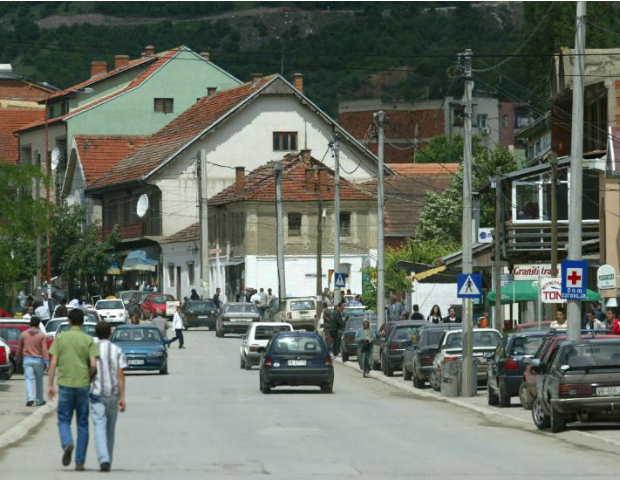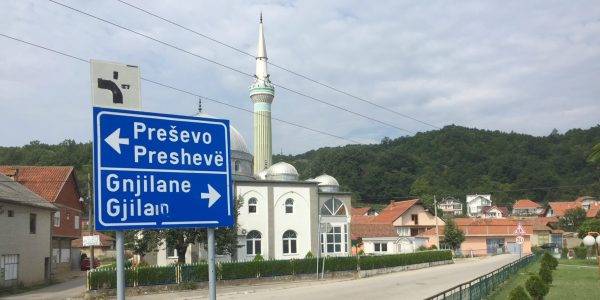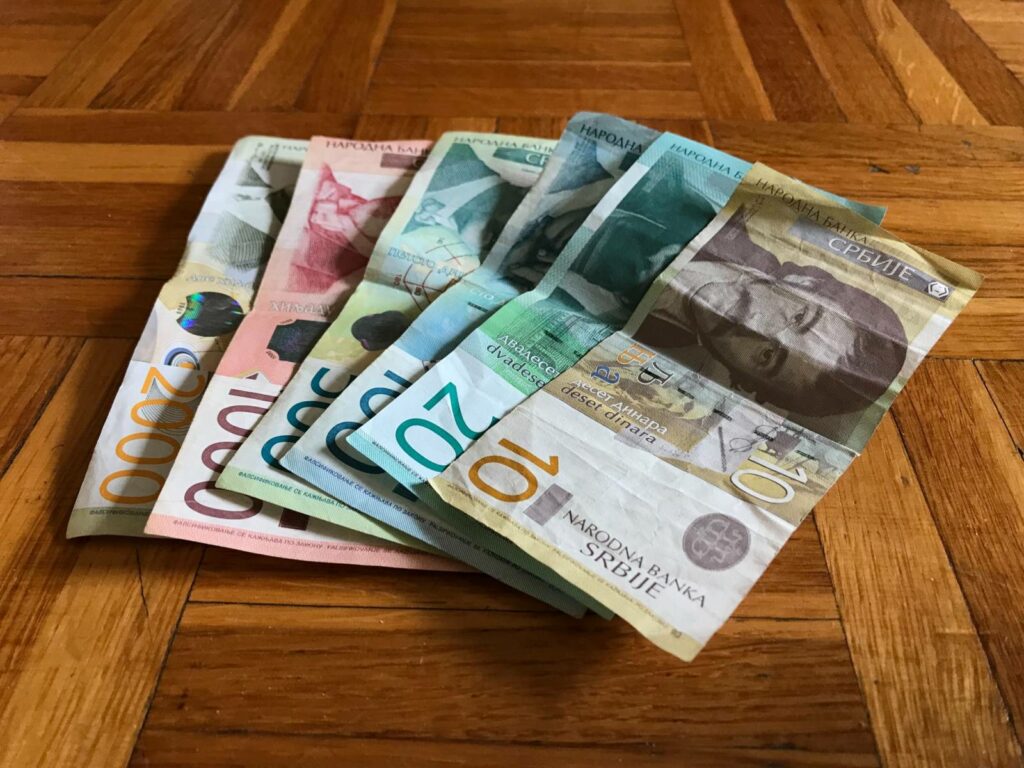Serbia pumps millions of undisclosed funds into Kosovo’s political system, blurring the lines between aid and interference. Meanwhile, what began as a noble gesture by the Kosovo government in support for the discriminated Albanian minority in the south of Serbia, has raised serious concerns over their use.
2022 was the first time that the Government of Kosovo, led by Prime Minister Albin Kurti, allocated funds—2 million euros—from the state budget to support the ethnic Albanian minority in the south of Serbia, in the three municipalities that make up the Presevo Valley—Presevo, Bujanovac, and Medvedja. The move was welcomed and considered long overdue by the locals.
For years, Albanians in southern Serbia had called for greater support from Kosovo and Albania, pointing to systemic marginalisation by Belgrade. Additional allocations from the Kosovo government followed in 2023 and 2024, amounting to a total of over 7 million euros in just three years.
The ambitious allocations were met with confusion, allegations of misuse, and a loss of faith in the political system because of a lack of transparency about how much of the money reached its intended beneficiaries.
Regarding the funds allocated in 2023 and 2024, the Office of the Prime Minister of Kosovo told BIRN and Internews Kosova’s Albanian language publication Kallxo.com that “we do not have reports from the respective municipalities because the projects were not implemented in cooperation with the Government of Kosovo.”
Through a memorandum of cooperation, the Government of Kosovo transfers these funds to the Albanian National Council, KKSh, an institution that represents the interests of the Albanian community at Serbian state institutions.
In 2024, legal ambiguities stalled the disbursement of the budget.
Allegations from the ground

Presevo Valley, Serbia. Photo: BIRN
The strongest criticism of the allocation came from inside the Valley itself. Visar Memeti, leader of the ethnic Albanian representative opposition party Alternative for Change, APN, in the Presevo municipality, accused the KKSh and affiliated organisations of grave misuse.
“The Kurti government was the first to take our cause seriously, allocating millions to support us,” Memeti says. “But of the 2 million euros allocated in 2022, 1.2 million euros went to NGOs and civil society groups—and what we saw was unprecedented abuse,” he stated.
According to Memeti, the funds were distributed without oversight, often to organisations tied to political allies.
He also claims that in 2023, the allocated money wasn’t used at all, while in 2024 only 1 million euros, designated for student scholarships was disbursed, leaving 2 million untouched.
“These funds were not managed with the interest of our citizens [in mind],” Memeti added. “They were managed to benefit political agents.”
Ragmi Mustafi, former chairman of the KKSh, has denied these accusations, defending the process as legal, public, and orderly.
“Short and simple—none of these claims are true,” Mustafi said.
“All procedures were followed. The decision passed through the KKSh, then the executive council, a commission was formed, calls were announced publicly, and lists of 75 beneficiaries were published. The contracts were signed in full transparency.”
Several recipients of the grants provided by the Government of Kosovo are individuals who also hold official positions in institutions in Presevo.
One of the beneficiaries is Besim Shabani, the Chief of Staff to the Mayor of Presheva and also a member of an organisation named “Development Agency.”
The “Development Agency” has not responded to allegations that it received funding due to Shabani’s influence. Shabani was unavailable for comment regarding the accusations directed at him and his organisation.
Fisnik Beluli, another beneficiary under investigation, was previously part of the cabinet of former Bujanoc Mayor Shaip Kamberi, and is now a member of the Party for Democratic Action, PVD. Beluli received approximately 18,000 euros for the media outlet InfoWiki.
In a statement to Kallxo.com, Beluli denied the accusations, stating that his grant had nothing to do with his political affiliations.
“No, no, that’s not true, absolutely not,” he said.
Gani Veseli, a current assembly member of the Party for Democratic Action, also benefited from these grants, receiving 45,000 euros for a project involving the production of five Albanian-language films.
“It was simply a regular competition, as an artist, a producer, an actor, that’s all. I don’t know what kind of investigation you’re doing, but the process is closed. You can find the five films on YouTube, I don’t know what else to say,” Veseli stated.
Former KKSh chairman Ragmi Mustafi insisted that there was no political favoritism involved in the distribution of these grants. He pointed out that beneficiaries included individuals close to the opposition, including the wife of Visar Memeti, leader of the Alternative for Change Political Party.
In response, Visar Memeti denied that his wife had applied directly to the Council’s public call, but confirmed that she had participated in a project implemented by an NGO that received the grant.
“The NGO received 5,000 I think, maybe 5,000 euros. I don’t recall exactly. That NGO contacted an actress and a director. My wife is a professional director. Yes, she participated indirectly, maybe as a second- or third-hand subcontractor, and was paid about 500 euros,” Memeti explained.
Meanwhile, the current chairman of the KKSh, Enkel Rexhepi, has declined to respond to the accusations directed at the institution regarding the mismanagement of funds, as alleged by the Alternative for Change Political Party.
A political divide

Presevo Valley, Serbia. Photo: BIRN
For Arbër Pajaziti, ethnic Albanian mayor of Bujanovac, the problem isn’t just bureaucracy but rather political manipulation. He emphasised that while Kosovo’s support is critical, it has been ‘captured by partisan interests’.
“Over the years, Kosovo has launched initiatives to support Albanians in the Valley,” Pajaziti says. “But in 2022, the money ended up in the pockets of party loyalists and not the citizens. Funds were used for political gain, not public good.”
Pajaziti pointed specifically to the Party for Democratic Action, PVD, a dominant political force in Presheva, accusing it of channeling resources to its own supporters.
Ardita Sinani, ethnic Albanian mayor of Presevo municipality,a leading figure in the PVD, and former advisor for the Presevo Valley to Kosovo acting PM Kurti, has not been reachable by Kallxo.com
A formal criminal complaint has been filed with Kosovo’s Special Prosecution Office in Prishtina by the Alternative for Change Political Party, alleging corruption in the handling of Valley funds. But the office has not responded publicly and it remains unclear whether an investigation has even begun.
Pajaziti’s party, Alternative for Change has sent a letter of complaint to the Ministry of Human and Minority Rights and Social Dialogue of Serbia, seen by BIRN, claiming that the public call for subsidies to farmers in the Presevo Valley, issued in late October 2024 by the KKSH, is beyond the scope of the institution. The party questioned whether the ministry had authorised the KKSh to issue such a call.
Serbia’s millions in Kosovo

Serbian Dinar Photo: Milica Stojanovic | BIRN
Serbia sends millions of euros annually into Kosovo to support the ethnic Serbian community, but there is no public accounting of where those funds go, who receives them, or how they’re spent.
In an electoral campaign interview on BIRN and Internews Kosova’s Debat Pernime TV Programme in February 2025, Serbian politician Radoica Radomirovic disclosed that in Leposavic, the Serb majority municipality in the north of Kosovo, certain projects received funding from both the Serbian and Kosovo governments, raising questions of double-profit and fraud.
“There is no transparency,” Radomirovic said. “No one knows where this money truly ends up.”
Efforts by the Kallxo.com team to obtain documentation from Serbian authorities were ignored. Journalists say tracing Serbia’s financial flows into Kosovo is near impossible.
Kallxo.com sent an inquiry to the Government of Serbia on April 12, 2025, requesting detailed information regarding the funds that entered Kosovo. However, as of now, no response has been received.
Kreshnik Gashi, editor-in-chief of Kallxo.com, has closely followed Serbia’s financial footprint in Kosovo. His findings suggest that money meant for development often ends up in the wrong hands.
“Funds from the Serbian government frequently end up in companies linked to politicians,” Gashi says. “From there, they’re used to finance political actors—especially Srpska Lista (Belgrade backed party)—which has damaged democracy in Kosovo.”
According to Gashi, there is no public database, no grant registry, and no legal obligation for transparency when it comes to Serbia’s support to Kosovo-based NGOs, artists, or sports institutions.
“These funds don’t always help the Serbian community. In many cases, they empower political networks, not people,” he says.
The Government of Kosovo has expressed concerns regarding the unofficial channels through which funds from Serbia enter Kosovo. These funds often arrive via trucks rather than through official border crossings, raising issues about transparency and accountability.
In addition to logistical challenges, there have been complaints from the Kosovo Serb community following the Kosovo government’s decision to ban the use of the Serbian dinar in early 2024.
Furthermore, Kosovo authorities have reported instances of double funding for the same projects, particularly in the context of the Banjska region. The indictment related to the Banjska attack in September 2023 revealed that funds were allocated to certain projects both through Kosovo’s tendering processes and directly from Serbia.
English version prepared by Ardita Zeqiri





